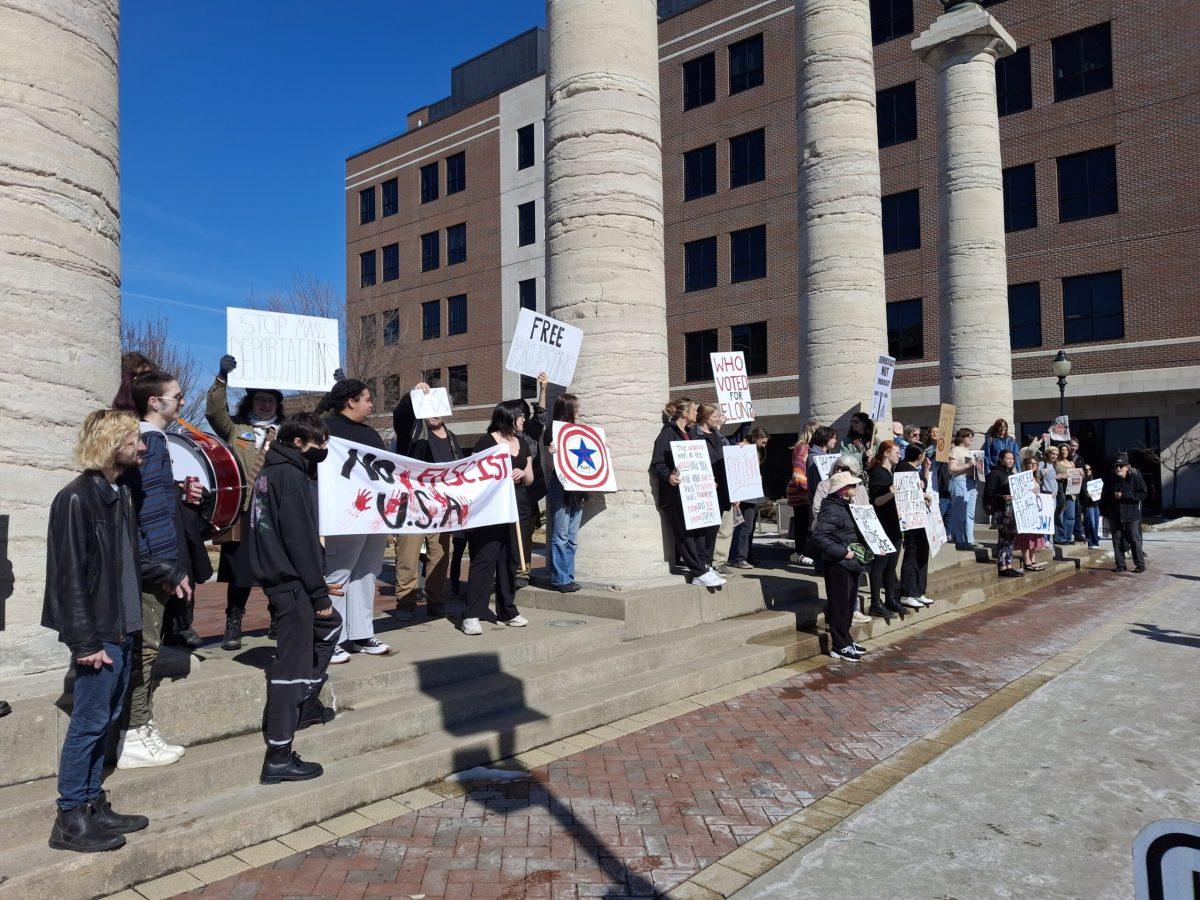With the 2015 release of the first article in a series of exposes published by the Wall Street Journal, whistleblower Tyler Shultz contributed to the fall of Theranos, a breakthrough health technology company that committed fraud.
Shultz spoke at the 20th anniversary of the Richard M. Orin Ethics Symposium on Oct. 14. He shared the importance of whistleblowing and ethics to a packed Bush Auditorium during the event, sponsored by the School of Accountancy in the Trulaske College of Business.
During the symposium, Shultz told his story about Theranos, exploring the nature of fraud and ethical issues through a presentation and Q&A session.
In 2003, Elizabeth Holmes founded Theranos in her pursuit of revolutionizing blood testing technology. She deceived investors through false or exaggerated claims about the accuracy of the testing methods and used a much smaller volume of blood than other testing technology at the time. Theranos claimed to use only a drop of blood, compared to the longer, more taxing traditional process of drawing blood from a vein.
Shultz worked for Theranos as a research engineer on the assay validation team and noticed not only the financial fraud perpetrated, but the risk to public health the faulty tests posed.
“[Shultz] had the moral courage to blow the whistle on Theranos,” Director of Accountancy Vairam Arunachalam said. “It’s a story of courage, perseverance and the desire to tell the truth.”
The first symposium, named for MU alum Richard Orin, who graduated in 1949, was held in 2002. According to his grandson Eric Weissmann, Orin’s experiences with ethics in his career as an accountant and lawyer and his love of MU led him to want to improve ethics education at the university.
“[Orin] always had Mizzou in his heart,” Arunachalam said. “He saw during his professional life that a lot of people were crossing the line or in the gray area between what is right and what is wrong, and he wanted to really try to make a contribution back to educating business professionals, back to educating students, about the importance of ethics not only in business, but [in] society.”
Arunachalam has been involved with the planning of the Orin Ethics Symposium since its inception. In the past, the symposium has featured speakers such as former U.S. Senators Chris Dodd and Paul Sarbanes, in addition to Orin, himself.
Weissmann, an organizer of the annual symposium, believes the event teaches students about the importance of an ethics education.
“Ethics is much less black and white than people think,” Weissmann said. “These symposiums, I think … teach students to … think for themselves when in difficult situations where the answer isn’t clear.”
The importance of MU students hearing from Shultz lies in relatability, according to Elise Bartley, an associate teaching faculty member in the School of Accountancy who helped organize a case study event.
Shultz was a junior at Stanford University when he first met Holmes, and was 22 when he first started working for her at Theranos. Bartley believes it was meaningful for college students to hear from a speaker who went through this experience at an age not far from where audience members may be now.
“It was so great for [students] to be able to humanize a whistleblower in this way,” Bartley said.
Weissmann agrees, saying that this ability to relate to and connect with the symposium’s speaker was “critical.” He added that hearing from Shultz demonstrates to audiences how complicated it can be, ethically and fiscally, to come out as a whistleblower against a powerful company.
Weissmann wants students to walk away from the symposium knowing they are in control of their own ethical decision-making, including understanding whether they can make the hard, yet correct, choice or look the other way when faced with ethical dilemmas.
“I want students to think about the fact that this is not theoretical,” Weissmann said. “Ethical decision-making … affects everyone.”
He believes the event contributes to setting a foundation of ethics knowledge as students plan to enter their professional lives.
Graduate student Sarah Whalen attended the symposium. Whalen, who plans to go into auditing, came to the event for her fraud class, in which whistleblowers like Shultz were discussed.
“It’s so important to speak your truth,” Whalen said. “You have to do what feels right for you. I think that it’s a really powerful message and it just makes me think about the future and in my life, if I’ll be brave enough to take that step.”
When looking at the future of the symposium, Weissmann hopes themes of professional ethics education continue to be present on MU’s campus. Besides increasing the size and number of case studies, he wants to explore furthering an ethics curriculum in and possibly beyond the business school.
“I think a world without ethics is not a better world, and I think the importance of ethics is the deciding factor between whether or not each generation does indeed make the world a better place or not.” Weissmann said.
Edited by Emma Flannery | [email protected]
Copy edited by Grace Locke and Jacob Richey












